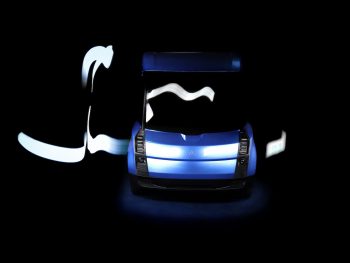The first prototype in a “new era” of electric light commercial vehicles is to debut at April’s CV Show under a new collaboration.

Watt Electric Vehicle Company (WEVC) has partnered with ETRUX, an electric commercial vehicle specialist, to develop a wide range of offerings delivering new benefits to the commercial vehicle market.
The tie-up will see WEVC’s EV platform technology adapted by ETRUX into a range of vehicles – the prototype will be based on WEVC’s Watt eCV1 3.5-tonne cab and chassis unit (codenamed eCV1 in development), complete with an inhouse-designed body.
The firms say WEVC’s highly flexible 3.5-tonne cab and chassis unit enables a wide range of electric commercial vehicle designs, facilitating mission-specific models which meet customers’ particular fleet requirements.
Neil Yates, CEO of WEVC, commented: “This is an exciting time for WEVC as we take the first steps in seeing our electric commercial vehicle platform adapted for a wide range of applications and uses.”
ETRUX CEO Gerard Galvin added: “The eCV1 prototype is really exciting, as it gives us the freedom to create vehicles that meet our customers’ needs more than ever before. With this platform, which has been designed to be electric from the ground up, we don’t have to work around the compromises that the industry traditionally faces, especially with electric vans derived from diesel bodies.
“WEVC’s platform really does bring advantages with such an incredible payload to weight ratio, the safety and energy efficiency benefits of the central driving position and the flexibility of both standard and bespoke vehicle lengths and layouts they can offer us. We are delighted to have signed the MoU with WEVC and we look forward to this vehicle being a huge commercial success.”
WEVC’s Passenger And Commercial EV Skateboard (PACES) architecture is optimised to minimise weight, delivering claimed class-leading payload in the 3.5- and 4.25-tonne segments, and reduced energy consumption for lower running costs. It’s also claimed to bypass many of the structural, weight and packaging compromises in electric LCV designs, converted from internal combustion drivetrains and “constrained by traditional high-volume manufacturing processes”.
Features of the new platform include an ergonomic cabin focused around a central driving position, which enables easy kerbside exit for driver safety and one-, two- or three-seat configurations.
PACES complies with ISO regulations and is said to exceed stringent European Small Series Type Approval safety standards.
The eCV1 prototype at the show will demonstrate many of the key attributes of the final specification vehicle.
CEO Neil Yates explained: “This is not a polished exhibition model for the CV show, this is a functional engineering prototype which will be going straight back out on the roads doing tough development miles immediately after the event finishes. We are delighted to be working with our friends at ETRUX to show visitors to the NEC an insight to what the final specification vehicle will be.”
ETRUX already has a number of industry operators signed up to see the vehicle at the show – and is inviting any other interested fleets to visit it at stand 5D88, at the CV Show from 18-20 April.

